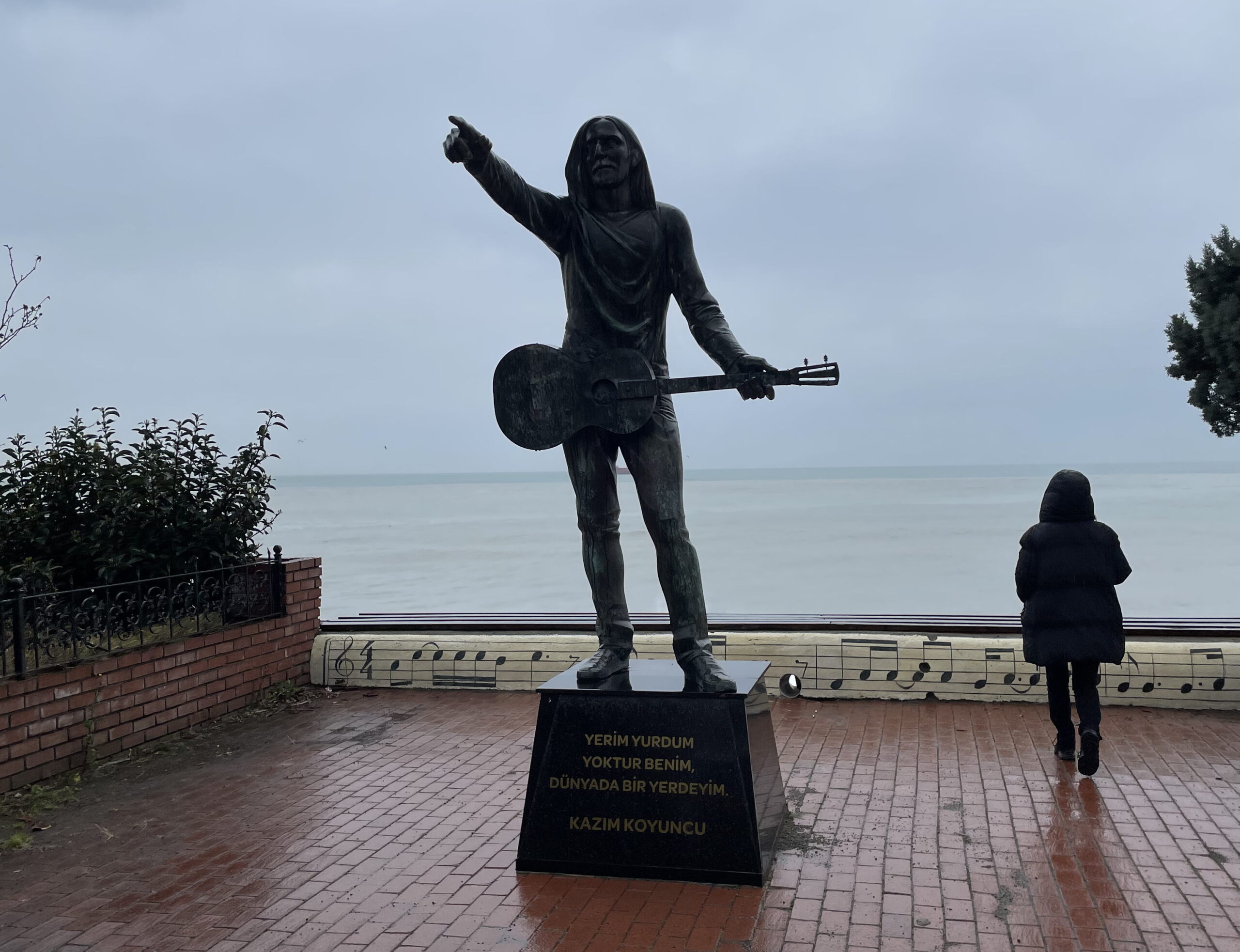Kazım Koyuncu

“I am a musician, then I am a bit of a Black Sea person, but above all I am a revolutionary. And I don’t hesitate to put forward what I really know to be true, at least if I am forced to do so.”
“Ben bir müzisyenim, ondan sonra biraz Karadenizliyim, ama hepsinin ötesinde ben bir devrimciyim. Ve gerçekten doğru bildiğim bir şeyi en azından çok zorlanırsam ortaya koymaktan çekinmem”
During my time in Turkey I visited the province of Artvin on the Black Sea coast in the northeast of the country for the first time. Whilst I had the opportunity to experience the cultural, natural as well as the political settings that are given in the eastern Black Sea Region.
One of the biggest music icons of Artvin was Kazım Koyuncu, a Musician, Songwriter, Actor and Activist. With his lyrics, poems and speeches he was a left-wing pioneer and therefore a role model for many young people in the region.
He was born in November of 1971 in Hopa, Artvin. In the 80’s he moved to Istanbul to pursue his musical career and released his first songs with the Band ‘Zuğaşi Berepe’ (Children of the Sea). In the year of 2001 Koyuncu released his first solo album: “Viya!”
In the following year after his first big success, he was asked to compose the soundtrack for the popular TV series “Gülbeyaz” and also tried his hand at acting for a small role in the series. His breakthrough came with the ‘Hey Gidi Karadeniz’ concert series.
In 2004 after he published his second and last soloalbum: “Hayde” he fell ill with lung cancer which could later be traced back to the Chernobl disaster. In 2005 he gave his last concert and succumbed to the consequences of his cancer on June 25, 2005.
Kazım Koyuncu became the first musician with Laz descent to gain mainstream success and therefore contributed significantly positive to the identity of the Laz people. With his songs realized in Lazca, Hemşince (Homshetsma/Hamshetsma) Turkish, Megrelian and Georgian language he toured in the whole country.
In his music he added both authentic and modern elements to his music with bass, electric guitar, drums, and computer-aided sounds, as well as Black Sea authentic instruments such as Tulum, Kemen, and Kaval. Therewith he created a synthesis of traditional Black Sea Music and Rock Music and his unique style of music.

Since I only learned about the importance of Kazım Koyuncu due to Eda, a close friend of mine. I asked her what role he played in her life as a young woman being born and raised in Hopa.
Calling him “Brother Kazım”, Koyuncu always took a familial part in the lives of Eda and friends from the eastern Black Sea Region.
For her Kazım was not only any songwriter but was a political and philosophical idol. She was listening to his speeches at concerts, and still lives after his ideologies.
Her thought patterns on certain topics such as individualism, humanity, war, injustice, love, being a world citizen in his sense of living and more were consolidated and clearly shaped by the song lyrics.
Symbolic to the importance of him in her life, after his death Eda and her surrounding used to console themselves with the following sentence:
“Kazım abi ölmedi, aramizda yasiyor” (“Brother Kazım haven’t died, he lives with us”)

